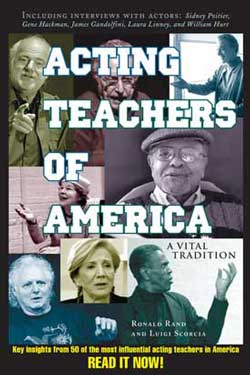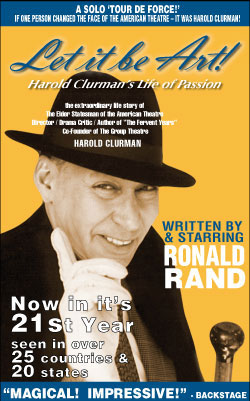Luna Cholong Kang
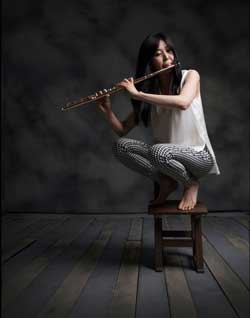 Ms. Kang, one of the most exciting new flutists in the world, recently performed in her solo debut at Carnegie Hall presented by Founder of Ear to Mind, Inhyun Kim, in a program that included a new work by Reiko Fueting (U.S. premiere), Jolivet’s “Chant de Linos,” Oliver Knussen’s “Masks, Op. 3” (world premiere of this version choreographed by Coco Karol), Inhyun Kim’s Luna (world premiere), David Lang’s “Vent,” Poulenc’s “Sonata for Flute and Piano,” Telemann’s “12 Fantasias for Flute without Bass,” and a new work by Julia Wolfe (world premiere). Ms. Kang began her career with a solo debut with the Seoul National Symphony, and has played with the Janácek Philharmonic Orchestra, Zephyrus Project Orchestra, Delphi Orchestra, and Manhattan Chamber Sinfonia. She received her master’s degree under the tutelage of Ransom Wilson at Yale University. Ms. Kang has performed in master classes with Jeanne Baxtresser, Denis Bouriakov, Karl-Heinz Schutz, and Jean-Michel Tanguy. An active chamber musician in various concerts with Le Train Bleu Ensemble, Windscape Woodwind Quintet at Galapagos Art Space, Symphony Space, Carnegie Hall, during this year she was invited to perform at the Tong Young International Music Festival, to perform with Bang on a Can All-Stars in their premiere performance at Timf Concert Hall and at Kumho Art Hall. She has received numerous prizes, including first prize of Umack Chunchu, the Music Association of Korea Flute Competition Award, Youngsan National Flutist, and Music Journal Young Musician’s Award.
Ms. Kang, one of the most exciting new flutists in the world, recently performed in her solo debut at Carnegie Hall presented by Founder of Ear to Mind, Inhyun Kim, in a program that included a new work by Reiko Fueting (U.S. premiere), Jolivet’s “Chant de Linos,” Oliver Knussen’s “Masks, Op. 3” (world premiere of this version choreographed by Coco Karol), Inhyun Kim’s Luna (world premiere), David Lang’s “Vent,” Poulenc’s “Sonata for Flute and Piano,” Telemann’s “12 Fantasias for Flute without Bass,” and a new work by Julia Wolfe (world premiere). Ms. Kang began her career with a solo debut with the Seoul National Symphony, and has played with the Janácek Philharmonic Orchestra, Zephyrus Project Orchestra, Delphi Orchestra, and Manhattan Chamber Sinfonia. She received her master’s degree under the tutelage of Ransom Wilson at Yale University. Ms. Kang has performed in master classes with Jeanne Baxtresser, Denis Bouriakov, Karl-Heinz Schutz, and Jean-Michel Tanguy. An active chamber musician in various concerts with Le Train Bleu Ensemble, Windscape Woodwind Quintet at Galapagos Art Space, Symphony Space, Carnegie Hall, during this year she was invited to perform at the Tong Young International Music Festival, to perform with Bang on a Can All-Stars in their premiere performance at Timf Concert Hall and at Kumho Art Hall. She has received numerous prizes, including first prize of Umack Chunchu, the Music Association of Korea Flute Competition Award, Youngsan National Flutist, and Music Journal Young Musician’s Award.
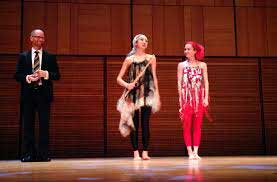 You presented a most thrilling concert at Carnegie Hall.
You presented a most thrilling concert at Carnegie Hall.
Thank you. It was one of the best things to happen in my life. I was so lucky to have such great composers a part of the program, and the world premiere pieces, and Inhyun Kim’s piece. It means a great deal to have these collaborations with these composers. I love performing. I feel very comfortable on the stage. I try very hard to show how much I enjoy playing.
How did it come about to involve Coco Karol in your program, and what was it like rehearsing the pieces?
There were a lot of rehearsals. I prepared for a whole year with Coco. Inhyun introduced her to me. I haven’t ever done anything like this before. As I worked with her, I stayed focused on the music in my mind, in my head, and when I moved with her I really wanted to make the two arts play together, not just flute and movement separate.
There was a specific direction in the score, when we should more together. Coco has such great instincts and we practiced together a lot together to get it right,
I wanted to make it a different kind of a piece – to move and play and breathe with Coco. I think the audiences were surprised. They didn’t know what to expect. Before we began, Coco has us to a body warm-up, which helped it all get going.
How young were you when you began and why did you want to play the flute?
Actually I had gone to a concert and had just started playing the flute for fun, and I watched a young girl play the flute, and so many people were clapping for her, responding so enthusiastically, and it made me really want be up there on the stage. I worked very hard and am very ambitious; that’s how I have become very serious about playing the flute. I grew up listening to classical and contemporary music, and would practice twelve hours a day.
You’ve studied with Ransom Wilson and participated in several workshops, one with Robert Langevin. What have been some of the greatest lessons you’ve taken away from them that influence your performing?
Ransom is a great musician and as a conductor. When I was at Yale for three years, there were a lot of concerts every two weeks, and I heard so much exciting new music being played. I wanted to play it so I began to work a lot with these exciting composers on their new music.
It was very interesting and thrilling that I could work with them. It changed my life. The most interesting thing was how the music could be changed just a little differently because of my playing the piece. It was exciting to see their reactions by my playing, and I’ve learned how to make it sound as great as it can be through the techniques I’ve learned.
How did you choose the instrument you use?
I tried a lot of instruments after I came to America. I really wanted a rich sound and a dark sound at the same time – an instrument that would work for my hands. I chose a flute made by one of the oldest flute companies but they remade it for me. Ransom Wilson helped me to choose the flute. He listened to many of them and after I played this one, he said: This is the right one for me.
Were there certain musicians that have inspired you?
First of all, Ransom Wilson; he’s my “father” in my music life. And I was also very inspired by all the composers at Yale.
You have quite an extensive repertoire.
I have chosen an ‘older’ repertoire on purpose. I ‘read’ really fast. This week, for example, there were three pieces I had to work on, and next week, there are two different pieces, so I am constantly practicing all the time. I’d like to try and create a concert where I could play as many of them as possible.
Do you see classical music continuing to have a large effect on the world today?
Yes, but I don’t really divide classical from contemporary music; it’s all connected. I don’t think of it as different musically. It’s based on how we use different techniques.
I love to make audiences think about how they feel about the music I play. That’s one of my jobs as a musician. For example, Julia Wolf’s new piece which I did in the concert is so beautiful and I had the opportunity to play it, so I’m immensely grateful for that, and it also engages the audience in an entirely new way.
Has your family been supportive?
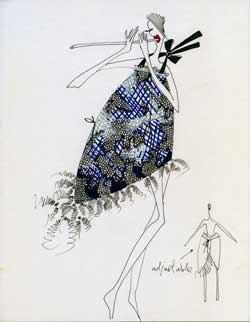 My family’s been very supportive. They’ve always said, if this is what you want, we will support you. I’m so lucky to have their love. They also came to the concert. My parents are not musicians, but they just love the way I play.
My family’s been very supportive. They’ve always said, if this is what you want, we will support you. I’m so lucky to have their love. They also came to the concert. My parents are not musicians, but they just love the way I play.
You also wore original costumes by Louda Larrain for your concert.
They were so beautiful. This is the first time they were ever worn, and it was a great joy to wear these costumes by Louda. Coco introduced her to me. It was a great opportunity to wear three of her dresses. She is in Hawaii, but she designed two of them specifically for my body.
What is it you would like audiences to come away feeling after experiencing your playing?
To realize that music is a part of all of us. It’s definitely an important part of me. I want people to feel the music in a very deep place within themselves – to feel like I felt when I was out in nature – with that kind of feeling. I want to play as well as I can so that they feel the music that way.
“Stella Adler always said no one could teach acting, but she could. She had a knack for teaching people about themselves, enabling them to use their emotions, and bring out their hidden sensitivity. She also had a gift for communicating her knowledge; she could tell you not only when you were wrong, but why. He instincts were unerring and extraordinary. If I hit a sour note in a scene, she knew it immediately and said, “No, wait, wait, wait…that’s wrong!” and then dug into her large reserve of intuitive intelligence to explain why my character would behave in a certain way based on the author’s vision. She taught me to be real and not to try to act out an emotion that I didn’t personally experience during a performance. Once she told a reporter that she thought one of the assets I brought to acting was a high degree of curiosity about people. It’s true that I have always had an unwavering curiosity about people – and I have always made it my business to find out. If I can’t figure somebody out, I’ll follow them like a weasel with persistence until I find out what his nature is and how he functions, not for any reasons of advantage. I have always been equally curious about my own potential and limits, and tested myself to learn how much I could stand of one thing or another – how honest I could be, how false, how materialistic or other-worldly, how frightened, to what extent I could take a risk and what terrified me the most.” - Marlon Brando























